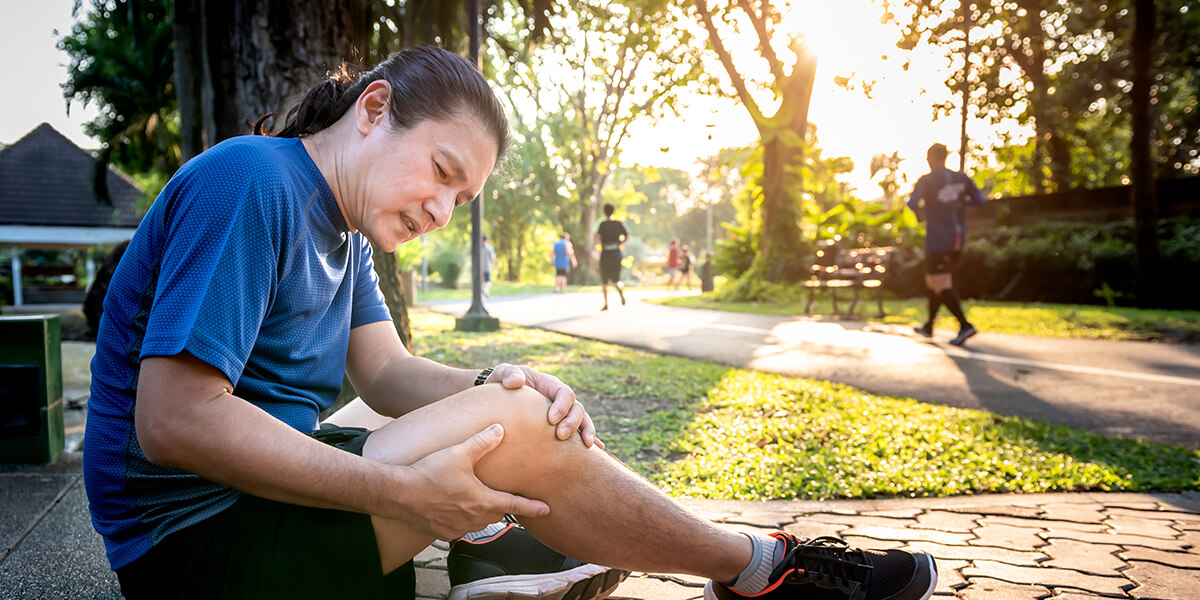Your meniscus is akin to a rubbery cushion. Sitting at the intersection of your kneecap, shinbone, and thigh bone, this patch of cartilage allows for greater mobility while also helping to evenly distribute pressure across your knee. Your ACL, by contrast, is more akin to a giant elastic band that’s stretched down the middle of the knee. It provides structural support for the knee, particularly during activities that involve bending and twisting.
But when one — or both — of them gets damaged or tears, it can cause serious problems for our mobility. As issues with either of them can present with similar symptoms, it’s key to ensure to speak to an orthopedic surgeon as soon as possible — this will help not only with diagnosis but with the subsequent treatment.
ACL tear versus meniscus tear symptoms
When an injury or tear occurs to the ACL or meniscus, it’s not uncommon for the initial symptoms to appear quite similar — pain in the knee, swelling, redness, and difficulties with mobility. However, there are some points of difference that can help home in on the problem. After a meniscus tear, it’s often quite difficult to fully extend or bend the knee. There can also be a “locking” sensation within the joint and reduced mobility as a result.
This doesn’t tend to occur with ACL tears. It’s not uncommon to hear a popping sound, while also feeling as though your leg or foot has given away beneath you. In turn, it can be quite difficult to place any weight on the affected leg. But whichever symptoms you may be experiencing, it’s still important to speak to your doctor as soon as possible. They will be able to provide you with a definitive diagnosis and outline a treatment plan.
Treatment for ACL versus meniscus tear
The specific treatments for a meniscus tear versus an ACL tear will generally vary depending on the seriousness of the injury itself.
A minor — or even moderate — meniscus tear can usually be treated with a combination of rest and pain medication. Although serious tears may require surgery, non-surgical options such as physical therapy are often investigated first.
Physiotherapy is also sometimes used to help manage mobility and pain with ACL tears. However, ACL tears will often require surgery, even if it’s not immediately. This becomes increasingly important if it’s affecting your leg’s mobility or pain levels on a day-to-day basis.
The recovery time also tends to vary; most issues related to the meniscus will usually resolve within a few weeks to three months, while ACL-related problems typically take 6-12 months to fully recover.
Treatment for meniscus and ACL issues at Texas Health Center for Diagnostics & Surgery
If you’re in need of treatment for issues related to your meniscus or ACL, the team at Texas Health Center for Diagnostics & Surgery is ready to assist. Surgeons on the medical staff are experienced at carrying out arthroscopy surgeries for meniscus tears or more general knee issues. They can also perform ACL surgery to help restore mobility. Get in touch with the team today — we can discuss the best options for your medical needs.
In addition to providing surgical treatment options for knee injuries the physicians on the medical staff at Texas Health Center for Diagnostics and Surgery offer a variety of treatment options for various medical conditions including endoscopic spine surgery, artificial disc replacement, hip replacement surgery, knee replacement surgery, ENT services, and urology services for men and women.

